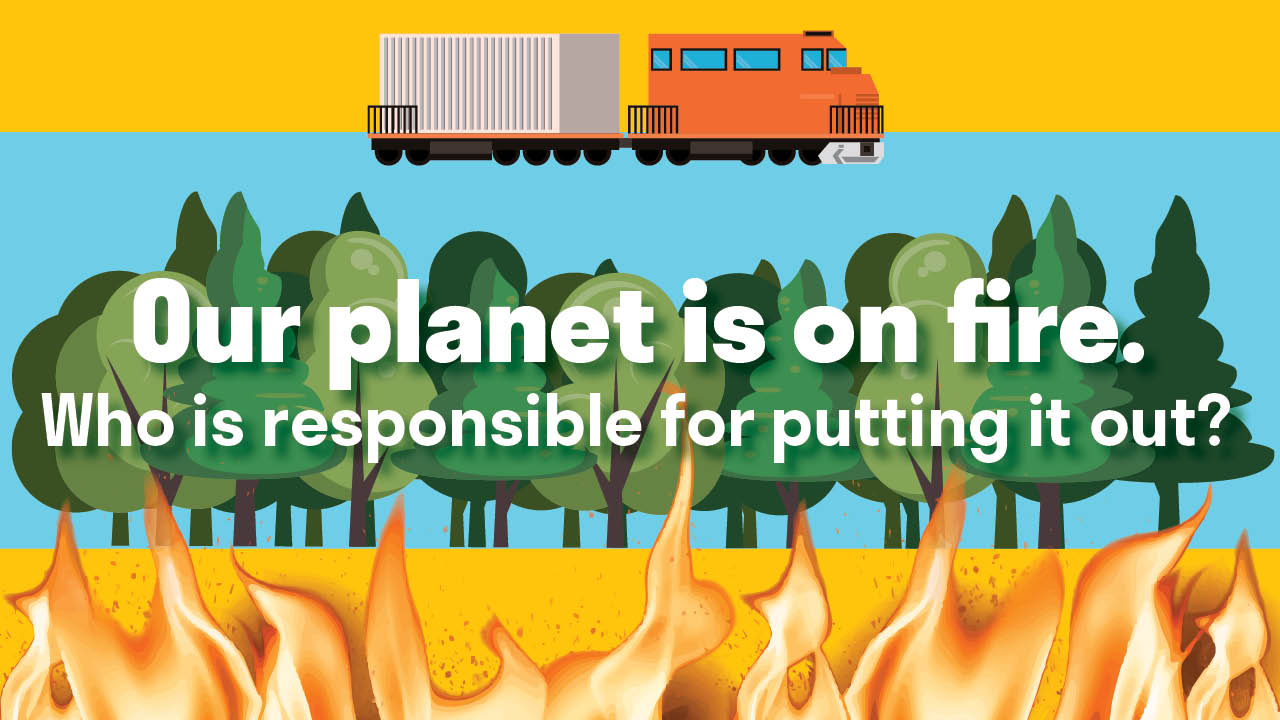Our planet is on fire. Who is responsible for putting it out?
 CREDIT: FSU PUBLICATIONS AND COMMUNICATIONS DEPARTMENT
CREDIT: FSU PUBLICATIONS AND COMMUNICATIONS DEPARTMENTGlobal warming is now at a boiling point. Last summer saw some of the hottest temperatures on record, with forest fires raging across Canada. The United Nations Climate Action research said that fossil fuels are the largest contributing factor to global climate change accounting for over 75 per cent of global greenhouse gas emissions.
Gillian Barker, a former assistant professor of philosophy specializing in scientific knowledge at Western University said there are several questions we need to ask as a society when it comes to climate change.
“First, gathering the information… understanding what is happening on the planet, what all the cause-and-effect relationships involved are between scientists and government, and how we can most effectively respond to the situation.”
From there, Barker said it’s important to then look at what is likely to happen in the future and under what circumstances, how severe the effects of climate change will be and who they are most likely to affect.
Barker explained that the experts who are best equipped to answer these kinds of value-related questions are not the same experts who are best equipped to answer questions about what is going to happen to the jet stream, the Atlantic meridional overturning circulation ocean currents, food production, or human health.
“We need a huge range of different kinds of experts, and we need them working together in an integrated way to make sure that they incorporate each other’s understandings effectively in their various kinds of work.”
According to Barker, specialized experts don’t have mastery of each other’s fields. All the large amounts of money spent on these teams of scientists doesn’t do anything if we don’t act on their suggestions.
“There are a bunch of agents that have roles to play… businesses play roles in developing technologies that can contribute to solutions or contribute to worse problems. And they play powerful roles in lobbying governments and funding election campaigns.”
Basically, governments and a few very wealthy institutions can enable research to happen. The choices made by those funders are very consequential, said Barker. Government policy decides what kinds of projects public money will directly support. It determines what kinds of actions by corporations and individuals are going to be limited by regulation or encouraged by financial subsidies.
Dr. Andrew Clark, a professor at Fanshawe College and owner of Healthy Way Consulting, studies how building natural environments influences health outcomes for society. Most of his work focuses on climate crisis from a transportation perspective.
“Transportation is the number one cause of greenhouse gas emissions in the world,” Clark said.
According to Clark it is going to take a lot of work from governments around the world to intentionally fund sustainable modes of travel.
“Moving from gas engines to hybrid or electric engines is just not enough, as the amount of fossil fuels that goes into production of these vehicles is no better than those of gas cars,” he said. “Not to mention the environmental impact of mining for the materials to make batteries and so on.”
Based on Clark’s research, the answer to this problem is to fund sustainable modes of travel, including public transit and safe active transportation infrastructure at the same level as we fund roads. He also suggested increasing housing density by creating dense 15-minute neighbourhoods, ensuring every resident in the city has an opportunity to travel to places they require by accessibly walking within 15 minutes.
Fighting climate change must be a joint effort between legislators and scientists. As we move forward, it will be essential for governments to fund the necessary research to understand climate change, while also investing in the infrastructure needed to put those findings to use and make a real difference.

















